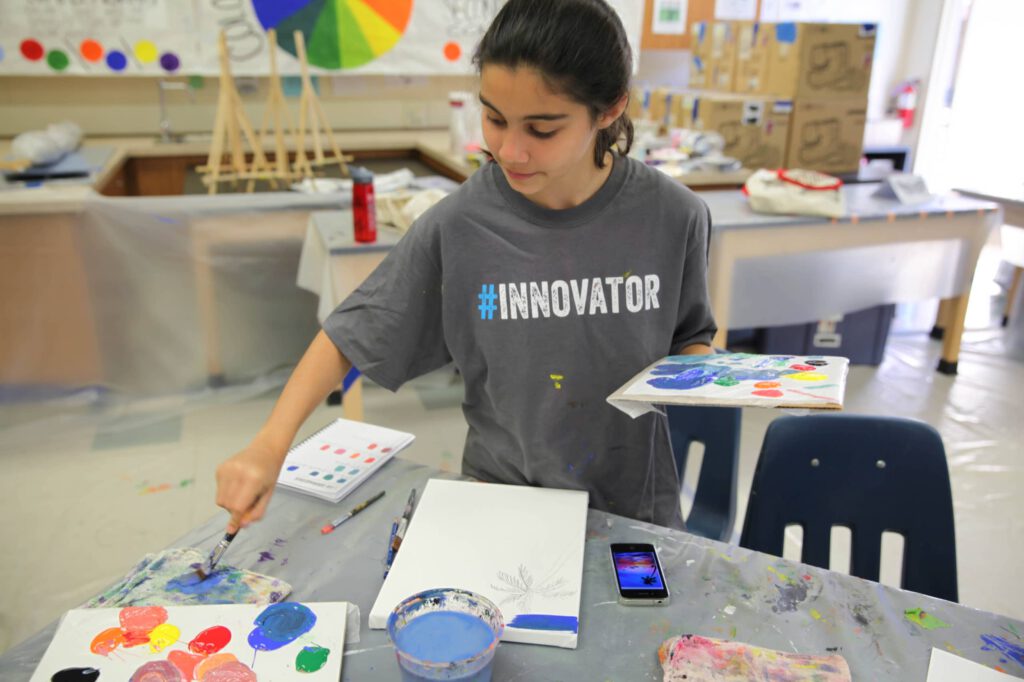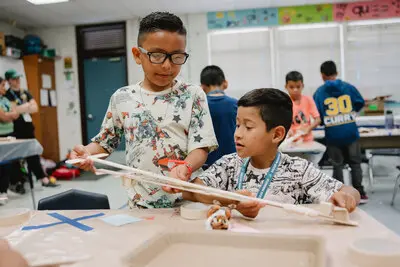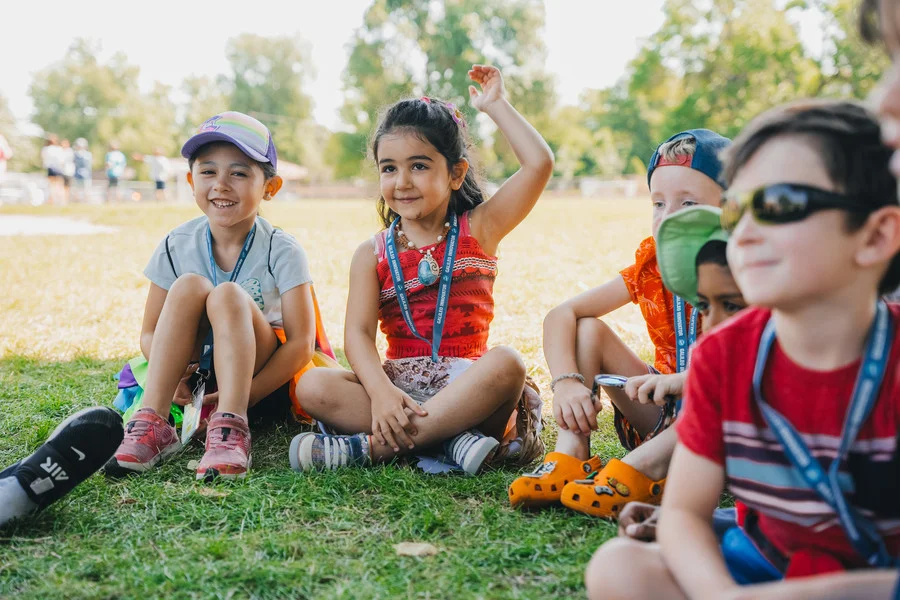Every single one of us has an unlimited supply of creative thoughts and ideas brewing inside our minds. The challenge? We often don’t know exactly how to tap into them.
Innovative thinking can be nurtured in children in a variety of ways. Through exposure to different types of physical activities, learning new skills, and exploring unique approaches to solving problems, middle schoolers can unlock their inner creativity and develop their innovation skills. It’s never too soon to start either, as these qualities can be developed from a very early stage in life. And here’s the best part: you can help.
Not sure exactly how fun activities can aid creative thinking? Here are three strategies to help middle schoolers build their innovation skills.
Embrace A Hands-on Approach To Learning
With each passing year, the world changes and evolves at a rapid pace. Even what we perceive as traditional “book knowledge” is taking on new dimension as ideas are constantly challenged and long-held theories shift in the information age. To stay competitive and ahead of the curve, it’s imperative that kids are prepared to adapt themselves to futures we can’t yet imagine.
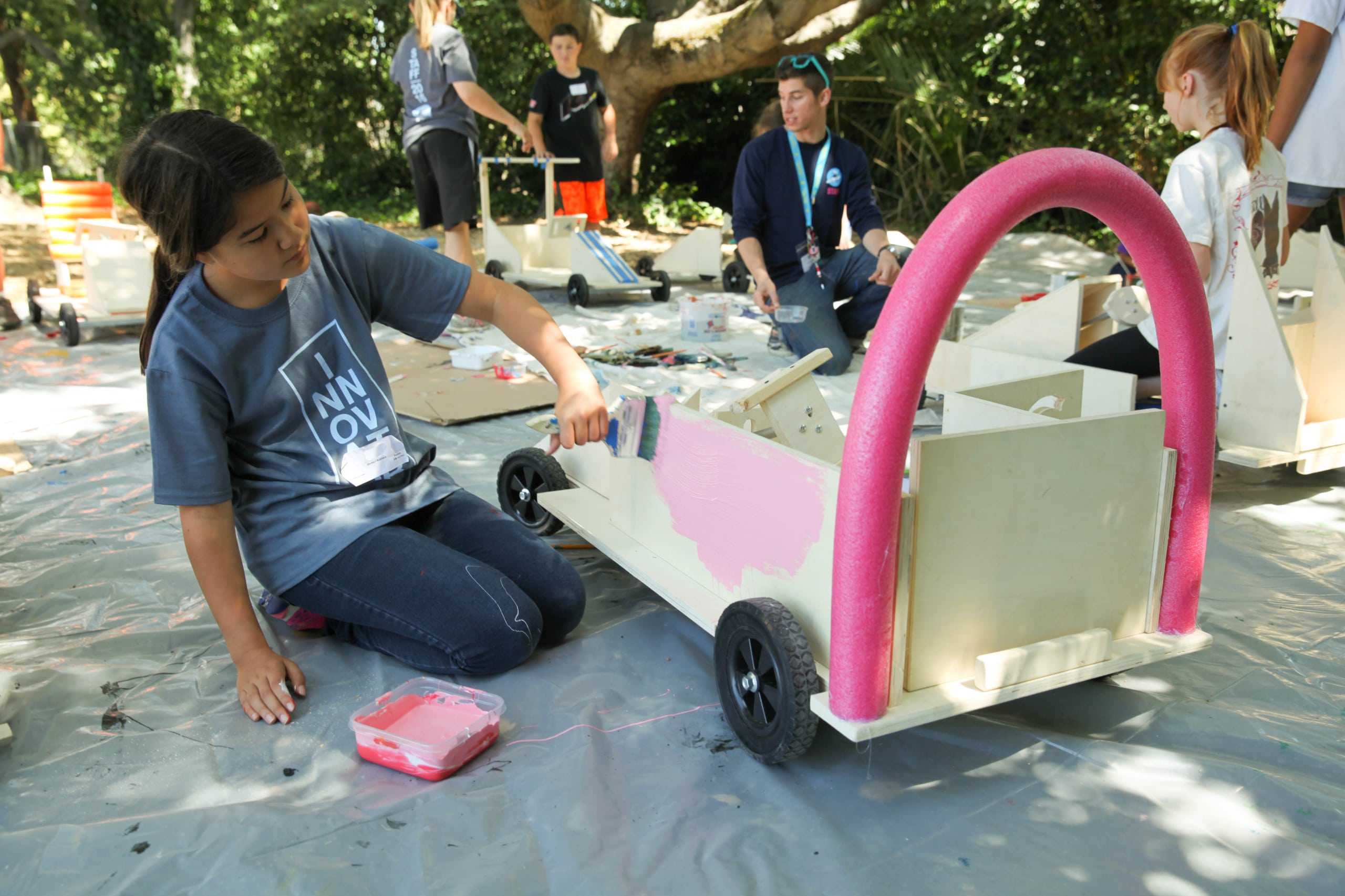
More importantly than teaching a heap of knowledge to children, it’s crucial to develop their skills. Knowledge can easily become obsolete in an ever-changing world, while the value of mastering practical skills is more long-lasting. As kids acquire new skills and work with others, vital traits such as collaboration and critical thinking can also be developed along the way.
When kids explore new concepts and practice challenging, exhilarating skills through repeated, hands-on practice, the results can be extraordinary. One 2014 study found that through engaging with makerspaces, participants were better able to identify problems, develop and apply skills, share ideas with others, and change course as necessary—exactly the kinds of skills young people will need to navigate a world of as-of-yet unanticipated opportunities and challenges.
Growing From Mistakes
One natural outcome of hands-on learning is mistakes. That may sound scary, but we think this is the best outcome that could possibly happen. Why? Because when kids fail in low-stakes environments, the mistakes they inevitably make in life don’t look like dead ends or permanent failures. Instead, they just look like one step closer to the correct answer. Many studies have shown that children’s learning is actually enhanced when they make mistakes.
Innovation and creative potential will flow freely when children examine where they went wrong and then find new approaches to solve the problem. At our camps, we embrace mistakes. In fact, we think they’re pretty marvelous.

I’m sure we can all think of a few moments in our life where we went wrong. But instead of seeing these as dead ends, reflect on how you managed to overcome these failures and turn them into successes.
Value Concepts Over Facts
Many preteens can rattle off facts from memory. However impressive this may look on a test score, it doesn’t make anyone a middle school genius. Teaching kids immutable concepts—and the critical thinking and research skills to be lifelong learners—better prepares them to adapt to a changing future.
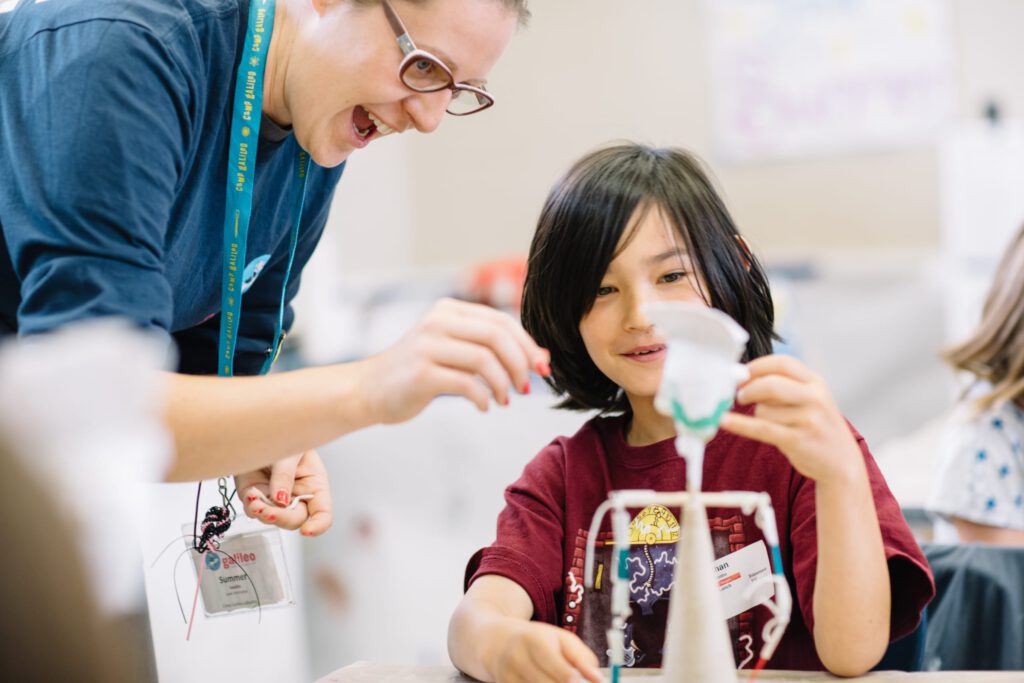
Here’s a helpful analogy to make this practical: Most of us know that the sun rises from the east and sets in the west. That’s a scientifically proven fact that’s fairly easy to commit to memory. The concept behind why sun rises from the east is because of the earth’s west to east rotation. That’s a concept that can be more widely applied than sunrise and sunset.
With an understanding of the many concepts that power and impact our world, students can use them to learn, develop and grow. Concept learning builds a deeper understanding of how to solve a problem.
—
If you want your kids to think and act like innovators, let them build those skills and mindsets themselves through these strategies. Some things in life just can’t be taught through drill-and-kill testing. Experience, critical thinking, playing, and having fun while embracing new concepts are some of the most effective ways to unlock innovation skills.
Our fun STEM education camps for middle school children are a great way to help bring out that innovative power. If you’re interested in learning more, click the button below to find a Galileo Summer Quest location near you. ????
